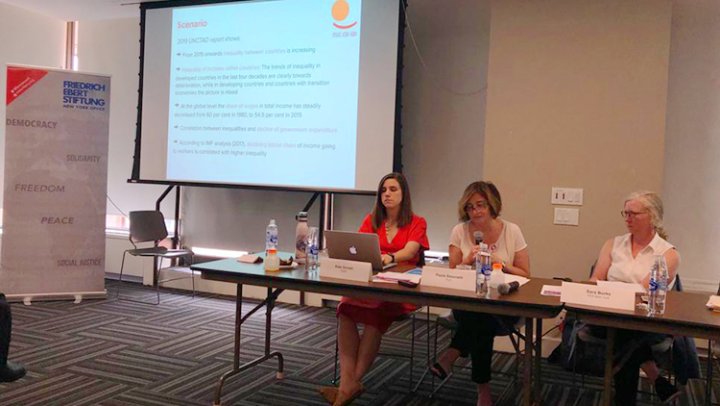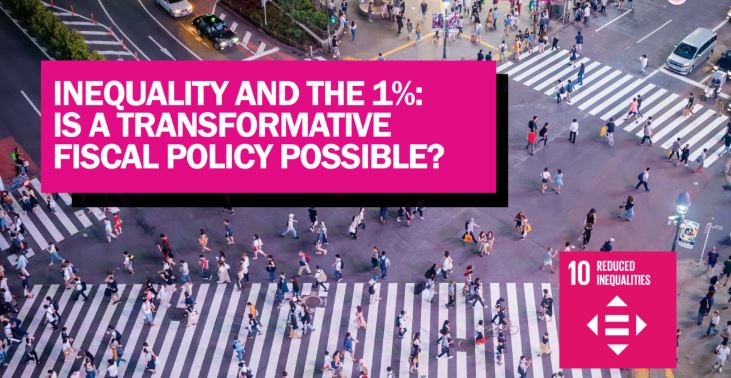Organised to explore key drivers and consequences of inequitable and ineffective tax systems, the event gathered a series of high-profile discussants who presented new empirical evidence and concrete experiences of different actors and countries that have implemented and funded equality-enhancing policies.
On behalf of the ITUC, Paola Simonetti (Deputy Director, Economic and Social Policy Department, ITUC) shared the labour movement’s viewpoint on what political strategies can be mobilised to move towards a new fiscal compact for sustainable development.

Paola Simonetti, centre, delivering her presentation during the FES HLPF side event.
In her presentation, titled “Inequality and International Finance: Making the SDGs the Guide”, Simonetti stressed the need for governments to reinvest in social protection and for international organisations and financial institutions to support transformative fiscal policies as central means to fight inequalities and foster sustainable development.
In this respect, social protection can also play a major role in boosting the implementation of SDG 10 (and 8) if it is properly connected to a wider framework promoting living wages, occupational health and safety, freedom of association, collective bargaining and vibrant social dialogue.
“Financing social protection is not a question of feasibility but of political will and it needs to be seen as an investment, not a cost.
![]() Paola Simonetti, Deputy Director, Economic and Social Policy Department, ITUC
Paola Simonetti, Deputy Director, Economic and Social Policy Department, ITUC
What solutions do trade unions propose?
- The international community can use development cooperation to support countries that cannot finance social protection extensions on their own. Shifting away from supporting small-scale and heavily targeted schemes to more comprehensive social policy schemes with broad coverage.
- The International Financial Institutes and Regional Development Banks need comprehensive policy coherence guidelines to address the existing mismatch between their institutional commitments and their ongoing practices. Although the international community has endorsed - through ILO standards and the SDGs - the objective of extending social protection to all, the policies that institutions like the IMF and the World Bank, among others, are promoting are often counter-productive as they are heavily focussed on cutting social spending and reducing social protection coverage.
Download the presentation “Inequality and International Finance: Making the SDGs the Guide”


